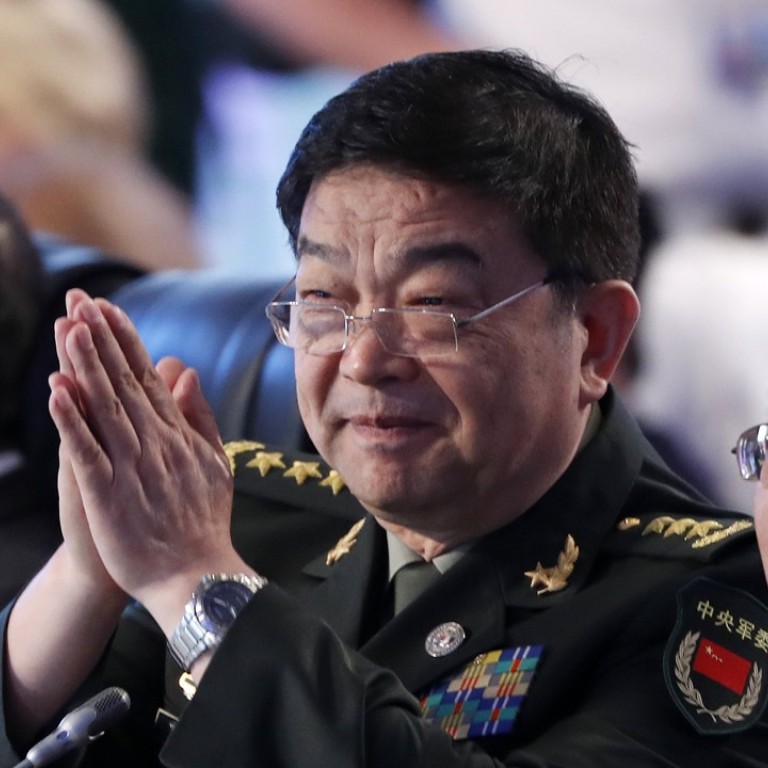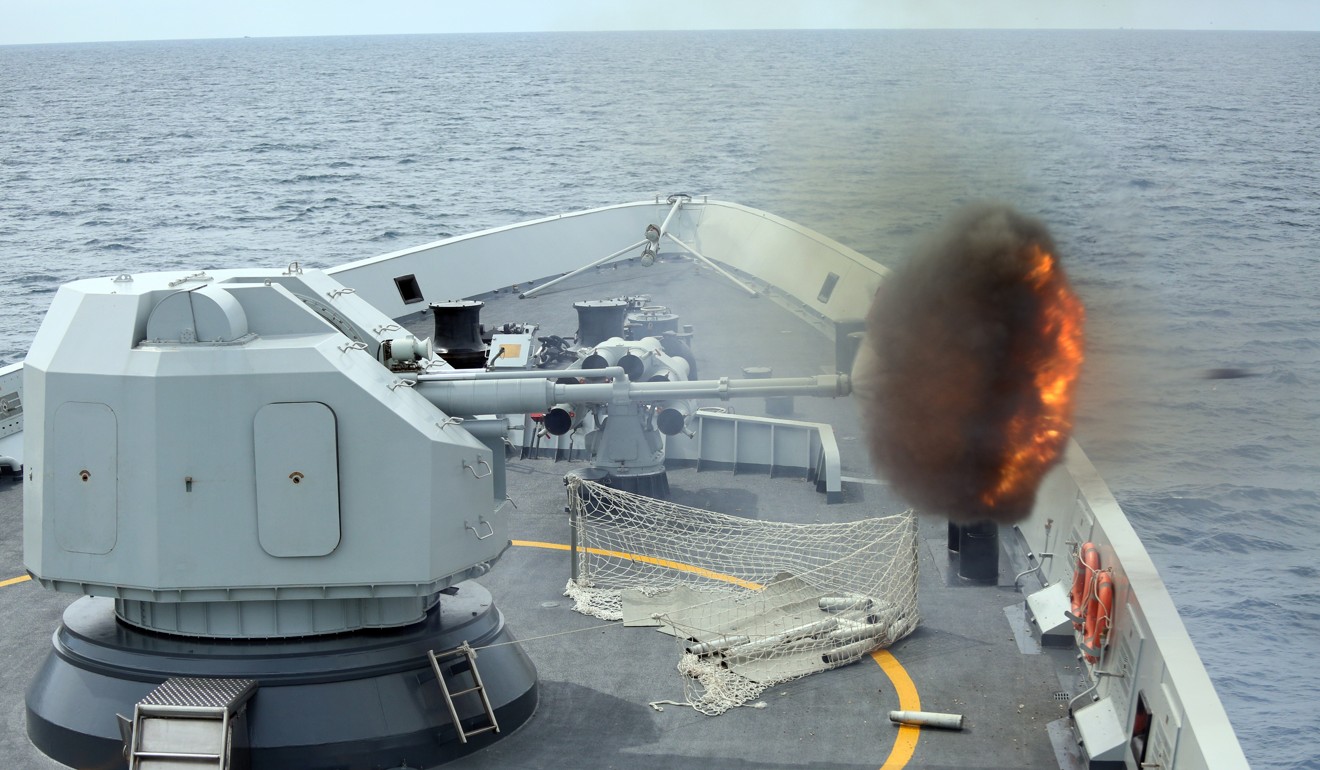
China and Asean to go ahead with first joint naval exercise in sign of greater engagement
Details of the exercise were not given, but observers say it points to an emerging view among the 10-nation bloc that China ‘is not the enemy’
China and the Association of Southeast Asian Nations plan to deepen their military relations and will go ahead with a joint maritime exercise proposed by Beijing, according to a statement from Singapore’s defence ministry, in a sign of greater engagement between the 10-member bloc and the region’s leading economic power.
China’s defence minister, Chang Wanquan, and his Singaporean counterpart, Ng Eng Hen, met on the sidelines of an Asean security meeting in the Philippines, and the two discussed “further practical initiatives to advance Asean-China relations” and plans to conduct an inaugural Asean-China maritime exercise, the statement said.
Singapore is the Asean-China dialogue relations coordinator from 2015 to 2018.
“Singapore supports it,” Ng told reporters when asked about China’s offer to hold maritime exercises. “We will push it … for the very reason that all of Asean and China want that. If you exercise, you at least build understanding and trust.”
He said details, including a suitable location, would be worked out later.
Details of the exercise were not given, but observers said it was likely to involve the nations’ militaries engaging in non-combat drills, such as navigation, signalling, and search and rescue exercises.

Carlyle Thayer, a regional defence expert at the University of New South Wales, said the exercise would mean Southeast Asian countries were “signalling that China is not the enemy”.
“This is a marker: do [Asean nations] want to cooperate with China or not?” he said. “China is putting out this cooperation, and is saying are you going to treat us like Japan, the US, Australia, or other countries?”
Ties between China and Southeast Asian nations have long been complicated by territorial disputes in the South China Sea, where Beijing lays claim to 90 per cent of the waters, overlapping claims from other countries.
However China has increased its military engagement in Southeast Asia, supplying arms to Indonesia, providing rifles and ammunition to the Philippines for its anti-drug and anti-terrorism efforts, and signing a 1.17 billion ringgit (US$278 million) defence contract with Malaysia.
Beijing and Asean nations also approved a framework for a code of conduct in the disputed waters in August, and are set to finalise it later this year.
Chin-Hao Huang, head of studies for global affairs at Singapore’s Yale-NUS College, said the exercise was likely to put into practice the Code for Unplanned Encounters at Sea (CUES) – an agreement reached in 2014 to reduce incidents at sea – in the South China Sea for the first time.
The exercise also reflected a more proactive and cohesive approach from Asean towards Beijing, he said.
“[Asean] is now in a position where what it says and does matters,” Huang said. “There is a collective interest in the 10 Asean nations to pool together their influence to ensure that Chinese activities in the South China Sea are going to be in line with regional interests.”
At the Philippines meeting, Chang said China wanted to engage in more multi-level cooperation with Asean such as joint sea drills and counterterrorism efforts.
“China is ready to … make contributions to further strengthen ties with Asean countries to build a community with a shared future,” Chang was quoted as saying by Xinhua.
Ni Lexiong, a Shanghai-based naval expert, said Asean nations had gradually turned towards Beijing as China’s economic and military stature grew.
“China’s policy of a peaceful rise has increasingly earned the trust of the Southeast Asian nations, and the future trajectory will see them continue to turn away from US efforts to contain China, while establishing closer ties with Beijing,” he said.
Additional reporting by Reuters

